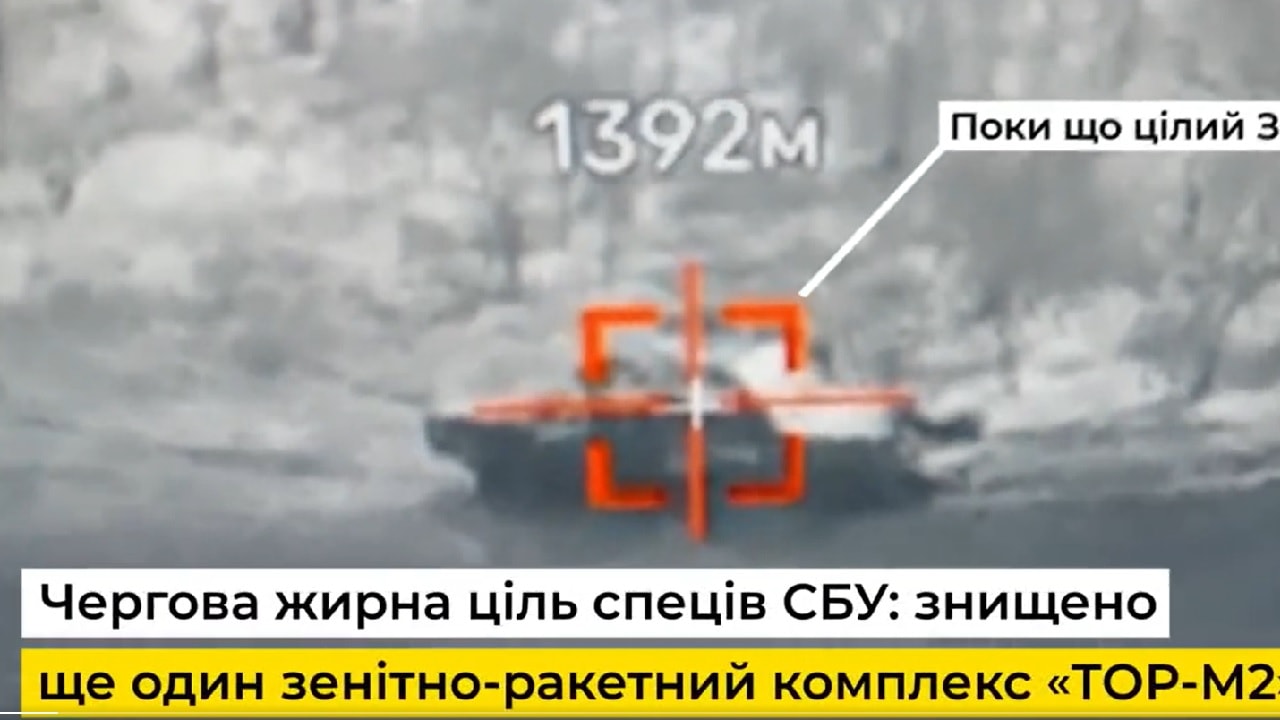But Should Putin Be Worried? History Says Not Yet – Ukrainian drone attacks against Moscow are little more than a nuisance for Vladimir Putin.
The Moscow International Business District has been hit with numerous attacks in recent days and weeks.
They are operations aimed at demoralizing the average Muscovite, not unlike the sorts of terror attacks waged by the Irish Republican Army (IRA) or perhaps Germany’s V-1 and V-2 attacks against London.
The War of the Cities during the Iran-Iraq War of the 1980s likewise had very little impact on that war, which ended in a draw.
Both Iran and Iraq fired Scud missiles into each other’s capitals.
In all of those cases, they did little to change the circumstances on the battlefield.
Ukrainian Drone Attacks Have Propaganda Value
The Ukrainian drone attacks on Moscow have more propaganda value for Ukraine than anything else, which benefits Kyiv.
They will not deter Vladimir Putin from continuing his occupation of large swaths of Ukrainian territory in southern and eastern Ukraine, but it does show Kyiv’s capabilities are growing.
As the recent Wagner mutiny and the likely assassination of Yevgeny Prigozhin proved, the only thing Putin has to worry about is the support of the FSB, the successor to the KGB, because without its support he cannot rule.
Drones began hitting Moscow in early May when two drones struck the Kremlin, causing little damage.
Moscow’s airport was shut down earlier this week due to Ukrainian drones.
“These attacks on Moscow are not aimed at killing millions of people,” Israeli military expert Yigal Levin told DW. “That is neither necessary nor useful. Instead, the goal is to block Moscow’s airspace and logistics channels, to paralyze airports and the transport system.”
Moscow’s legendary air defenses have been impotent against drone attacks, once again showing the ability of the new technology to compromise traditional air defenses.
“Such small objects are predominantly made from composite materials rather than metal, follow complex flight patterns and therefore present a challenge for any air defense system,” Mykhailo Samus, a Ukrainian military expert based in Prague, told DW.
Ukraine’s UJ-22 and Bober, or “Beaver” drones are incredibly hard to intercept.
He noted that Russian radar has an exceptionally difficult time locating the drones let alone killing them.
“To shoot down a target, you first have to identify it. This will be done by radar stations, which ideally should be part of an integrated radar field,” said Samus. “But we can assume that Russia does not have such a radar field. Its air defense systems detect individual objects but don’t cover an entire area.”
The Ukrainians, therefore, launch individual drones that spot radar stations and launch more drones at gaps in Russia’s radar defenses “deep into Russian territory, where there are fewer air defense systems than in border areas.”
Muscovites Getting Used to Attacks
Muscovites say they are getting used to the attacks. The Ukrainian drone attacks are supposed to convince Russians that the war is pointless and to bring the war to them; however, it does not seem to be having the desired effect.
“Unless it affects someone personally, it could leave people indifferent or it could cause an even sharper polarisation of views: I suspect when a drone flies into your house, those who were not pro-war or were undecided may start to side with the government,” a Moscow resident who only identified herself to The Telegraph as “Anna” said.
John Rossomando is a defense and counterterrorism analyst and served as Senior Analyst for Counterterrorism at The Investigative Project on Terrorism for eight years. His work has been featured in numerous publications such as The American Thinker, The National Interest, National Review Online, Daily Wire, Red Alert Politics, CNSNews.com, The Daily Caller, Human Events, Newsmax, The American Spectator, TownHall.com, and Crisis Magazine. He also served as senior managing editor of The Bulletin, a 100,000-circulation daily newspaper in Philadelphia, and received the Pennsylvania Associated Press Managing Editors first-place award for his reporting.
From the Vault
The Navy Sent 4 Battleships To Attack North Korea
‘Sir, We Hit a Russian Submarine’: A U.S. Navy Sub Collided with a Nuclear Attack Sub

